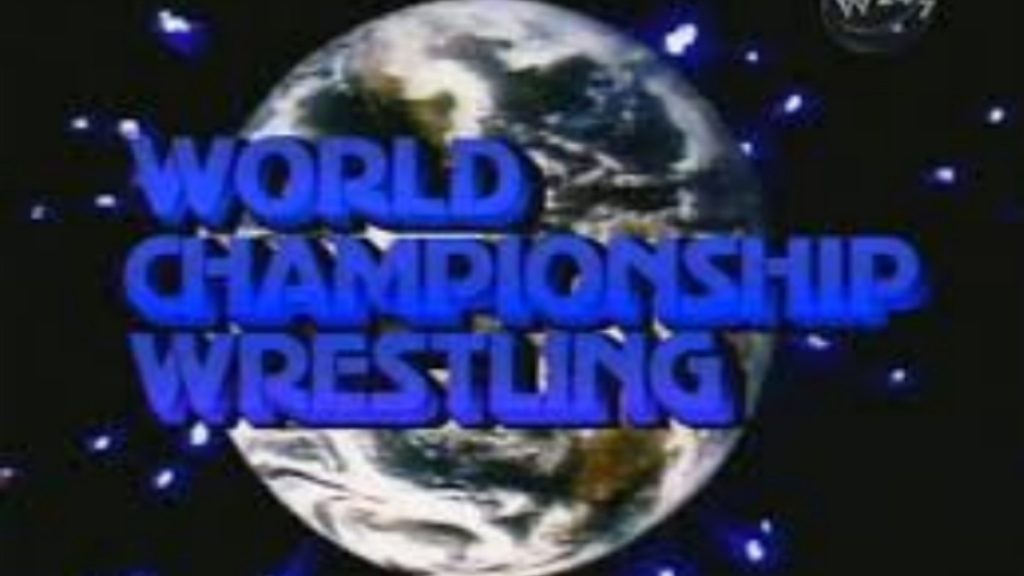When VICE’s Dark Side of the Ring announced that it would be covering the notorious “Black Saturday” in July 1984 when Georgia Championship Wrestling (GCW) was unexpectedly replaced with WWF programming, I did a solid, Huh.
So many of the key players from that time period are long gone, and others, like Vince McMahon, aren’t exactly talking.
And I also knew that John Molinaro had done the definitive recap of “Black Saturday” on SlamWrestling.net back in 2001, after TBS had pro wrestling taken off the air with the sale of WCW to WWF.
To their credit, the Dark Side people dug up some decent talking heads, and a couple of surprises, but in the end, this is a story about behind the scenes backstabbing, so your enjoyment of the episode will be very much based upon getting your thrills over corporate intrigue.
If anything, “Black Saturday: The Rise of Vince McMahon”, was too ambitious, as it not only had to explain, almost point by point, how GCW operated, including ownership, through the sale and then the launch of Hulkamania and the rise of the WWF. In 44 minutes. And then they jumped decades to Vince McMahon’s recent sexual scandals and departure from the company he founded.
It will not be an episode that will draw in non-wrestling fans. It wasn’t dark and sexy by any means.
As has been the case pretty well all season, it was left to Jim Cornette to be the sane voice, and he summed it up: “Black Saturday in and of itself wasn’t a groundbreaking moment, it was the canary in the coal mine.”
Talking heads included:
- Jerry Brisco — the only shareholder around and able to talk, as Ole Anderson had serious MS and died in February
- the oldest son of Ole Anderson, Bryant Rogowski
- wrestlers Bob Roop, Tommy Rich
- Referee Nick Patrick / Joe Hamilton Jr.
- GCW front office workers Bobby Simmons and Louise Cochran
The key figure in it all, and through so much of wrestling’s history, from the 1950s to 1987, was Jim Barnett, so the early part had to explain who he was … but never went into Barnett’s “dark side”, much of which Jim Wilson laid out in his autobiography. A homosexual in a very masculine world, Barnett truly stood out in many ways, and would be a good episode in and of himself.
The crux of it all is that Barnett lived well and Ole believed that money was being pilfered from GCW, and, as one of the co-owners, he wanted and eventually sought out answers, breaking into the office to look through the books. Ole tries to lead a coup, Barnett leaves … and goes to Vince McMahon, who has expansionist ideas of his own.
The Briscos have it out with Ole, but all make up with a drunken blood oath in a hotel room … but then they feel that Ole cheated them out of money and eventually are flown up to LaGuardia airport to sell their shares and arrange for others to sell to McMahon, truly setting in motion the future of the WWF.
GCW was a huge show, seen nationally on TBS, which was the first superstation. McMahon didn’t air live matches, as GCW had done, instead showcased matches from around the country featuring unknown wrestlers to the loyal viewers.
Those fans demanded the return of their rasslin’ which they eventually got, in a 7:30 a.m. time slot on Saturdays with the return of GCW, Ole dealing directly with owner Ted Turner. That wasn’t explored much, though.
Instead we return to more behind the scenes stuff, stories of the Briscos being threatened for selling out the business as a whole, and then, after less than a year, Vince selling the time slot on TBS to Jim Crockett Jr. for a million dollars … which helps to fund the first WrestleMania in March 1985.
Did you follow all that? It is tough to do in print, let alone through talking heads and re-enactments.
I can’t say that this Dark Side was weak, because it was interesting but not especially compelling. Really, it was not “dark” at all.
Should the series return next season, a name change to something like Dark, Sad and Complicated Side of the Ring will be more fitting.
RELATED LINKS
- Apr. 3, 2001: End of an era on TBS: Solie, Georgia and ‘Black Saturday’
- Apr. 4, 2001: End of an era on TBS: Crockett, Flair and ‘The Clashes’
- Apr. 5, 2001: End of an era on TBS: Fond memories of the SuperStation
- Apr. 12, 2001: End of an era on TBS: The letters
- Slam Wrestling’s Dark Side of the Ring story and review archive

